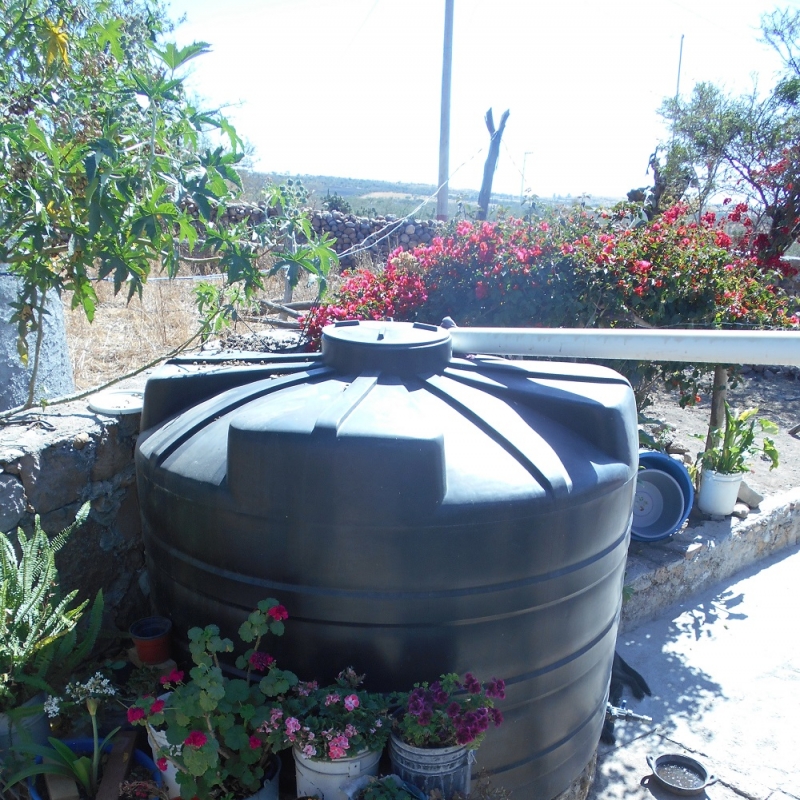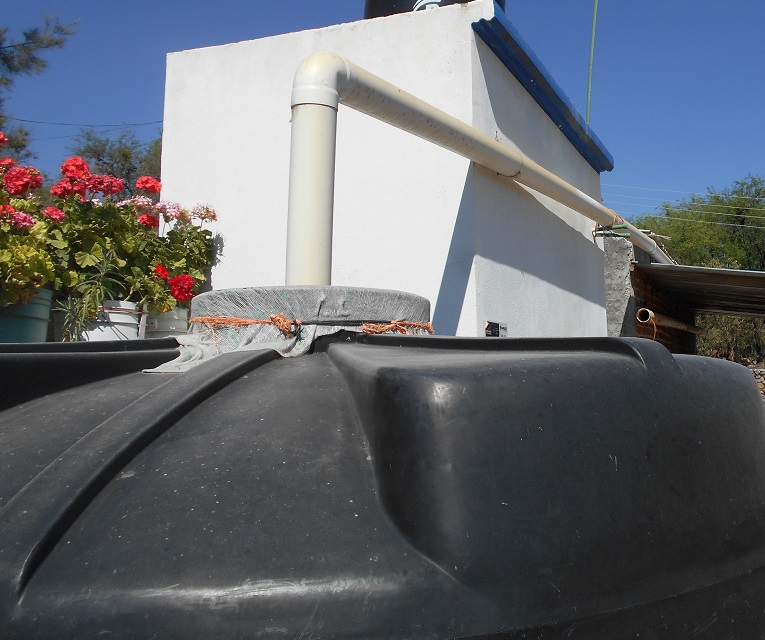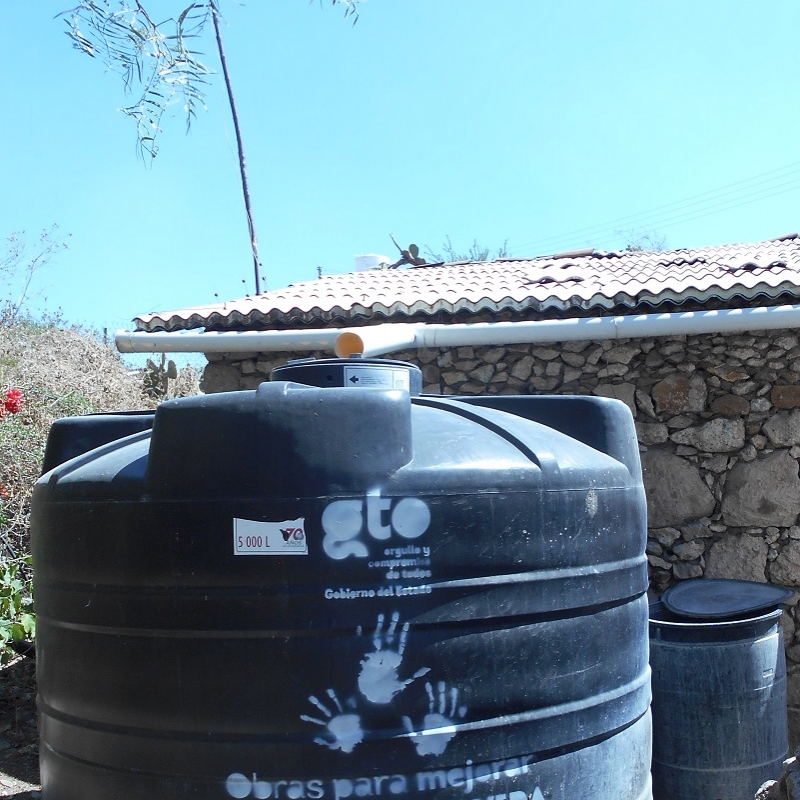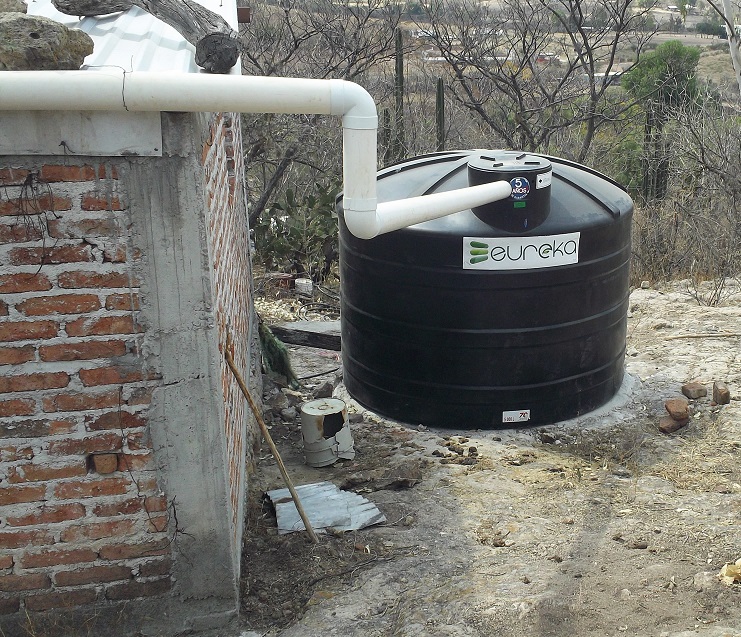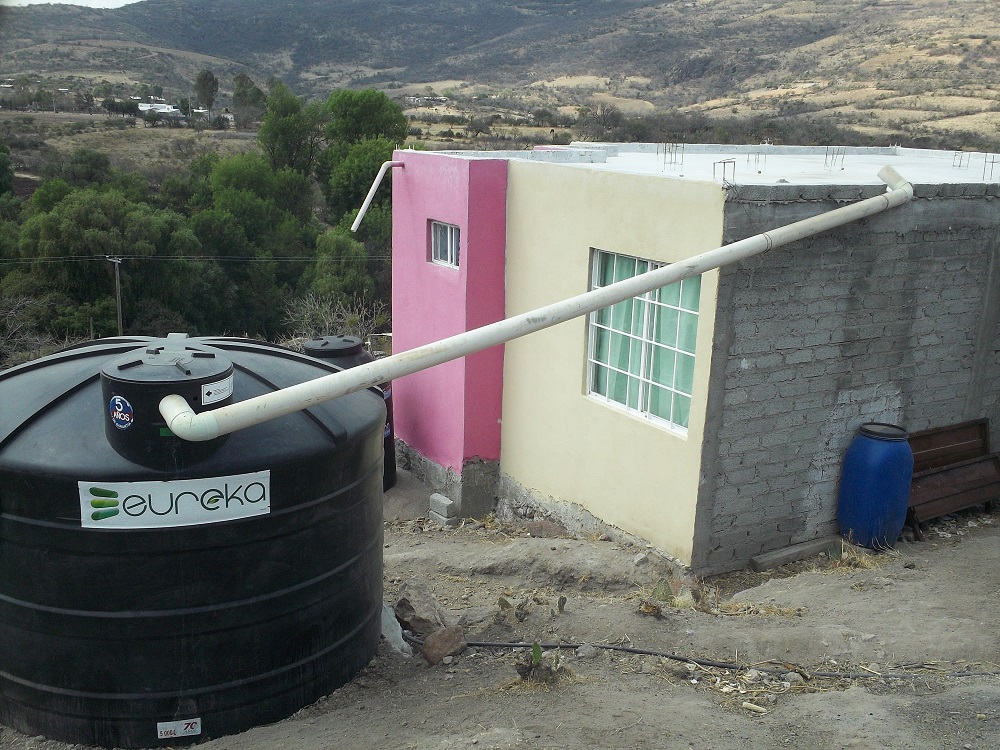Rainwater is an alternative source of water supply for users who do not have access to public water networks. It also prevents the generation of CO2 through the transfer of water from other sources. The monitoring of rainwater catchment systems can improve their functioning and expand their benefits.
Through its State Institute of Ecology (IEE), the Government of Guanajuato State has implemented the Comprehensive Community Sustainability Program (PISC), an initiative with the objective of using renewable energies to mitigate greenhouse gases (GHGs) and meeting the needs of communities vulnerable to climate change in Guanajuato State. Since 2015, PISC has been implementing the Rainwater Capture System (SCALL) to take advantage of this natural resource.
The Deutsche Gesellschaft für Internationale Zusammenarbeit (GIZ) GmbH, through the Mexican-German Climate Change Alliance, supported in the monitoring and evaluation of SCALL’s impact on climate change. The project was carried out by Isla Urbana, an organization that specializes in the installation of rainwater harvesting systems.
On August 24, 2018, GIZ and Isla Urbana presented the results of their impact assessment to IEE’s general director and identified several key benefits of the SCALL system:
• By providing better quality drinking water, the rainwater capture systems lead to positive health outcomes, including a reduction in the incidence of water-borne diseases. This is due to the fact that groundwater in some areas of Guanajuato is contaminated by arsenic and fluorine.
• It generates an economic savings as users can reduce their consumption of water from other sources. The rainwater collectors installed under the PISC guidelines supply approximately 15 million liters to the region, which saves approximately 13 million pesos on the purchase of water jugs or just over two million pesos on the cost of water distributed through pipes.
• It combats climate change. Through SCALL, each year 800 fewer tons of carbon dioxide are released than when consuming water from jugs, which is the source of drinking water that generates the highest levels of GHG emissions.
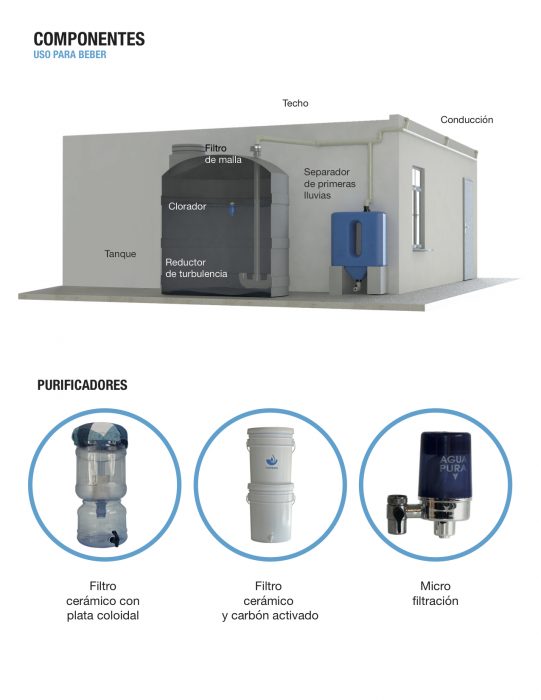
Additionally, it presented a list of recommendations for the correct installation of SCALL and the possibility of having systems that allow the water collected to be used for human consumption. The results will permit new routes to be implemented for Guanajuato’s PISC, which will improve beneficiary selection mechanisms, the quality of collected water, and the monitoring and evaluation of its performance. As a first measure, the IEE announced that in the next stage of PISC—to be implemented in 2019—resources will be allocated to purchase 40 SCALL with filtered drinking water systems because, as mentioned above, these have a positive health impact.
These results will also support the installation of systems in other states, which will contribute to achieving the Sustainable Development Goals (SDGs), including an end to poverty, good health and wellbeing, gender equality, clean water and sanitation, reduced inequalities, and sustainable cities and communities.

